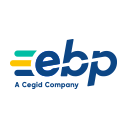Build strong customer relationships with the 8 best CRMs for the construction industry

Managing customer relations in the construction industry is no mean feat. And not just because of deadlines that can get out of hand due to the weather, suppliers or unforeseen circumstances. But above all, the paperwork that accumulates (estimates, invoices, amendments, plans, etc.) and customers who don't always understand the technical constraints.
This is where a CRM dedicated to the construction industry can make all the difference. It provides instant access to the history of each customer (calls, e-mails, what has been promised, etc.), or to all the documents concerning them. Even on the job site.
What are the best solutions on the market in 2025? Here's a selection of 8 concrete construction CRMs .
What is a CRM?
Definition of CRM
Before going into the details of our solutions, let's review what exactly is meant by CRM (Customer Relationship Management).
It's software that centralizes all information relating to a company's customers and prospects in a single database.
What are the functionalities of a CRM for a construction company?
Be careful not to confuse it with a simple contact file. Above all, a CRM enables you to industrialize sales follow-up and business management, from A to Z.
In concrete terms, the software will integrate :
- A customer database with all relevant information: contact details
- contact details ;
- contacts (project owner, project manager, architect, inspection authorities, etc.) ;
- sales figures ;
- types of services ;
- materials installed ;
- equipment installed.
- Complete exchange history:
- e-mails ;
- calls ;
- appointments ;
- contracts signed ;
- complaints ;
- after-sales interventions.
- Business management, with tracking of leads, calls for tender and current opportunities. For each project, you can create the design file directly in the CRM, with the specifications, plans and descriptions. The quotation is then costed, including quantity take-offs, ratios and outlays. Libraries of works, schedules and reference prices are integrated to save time.
- Analysis and management tools with customizable dashboards. Real-time visualization of :
- status of current business ;
- sales pipeline ;
- projected site profitability;
- team occupancy rates;
- pending invoices.
The advantage of a CRM? Constant dialogue between sales and operations.
Can a CRM be connected to a construction company's other software?
Yes, and fortunately so, because it would be a shame to work with a software package in isolation.
In fact, integration has become an essential criterion for construction companies:
- with site tracking software, in both directions, with customer information from the CRM transferred to the site tracking software, or site progress data transferred to the CRM to keep customers informed;
- with accounting software, to transfer validated estimates and invoices from CRM to accounting, and in the other direction, to track customer payments.
In practice, it's almost always the case that vendors offering CRM solutions for the building and civil engineering sector supply more comprehensive ERP (Enterprise Resource Planning) or CMMS (Computerized Maintenance Management System) software. This is logical, given that the needs of the construction industry mean that customer relations and site follow-up must be connected at all times.
The ideal solution is an all-in-one software package that centralizes site documents (service orders, execution schedules, work sheets, site logs, meeting minutes, purchase orders, delivery notes, invoices, work progress reports, etc.) with customer documents (quotes and contracts).
Why is a CRM essential for a construction company?
As we said, the processes and the business are very specific. If you use a conventional CRM, you'll quickly come up against limitations. So you need a CRM tailored to the realities of the building trade.
1. Easily produce estimates and work orders
Responding to a call for tenders takes an inordinate amount of time. You've got to go through the tender documents, collect the quantities, consult the reference prices, contact the suppliers, and so on.
With a construction CRM, much of this work is automated:
- quantity surveys are imported in just a few clicks;
- recurring jobs are stored in libraries from which they can be drawn;
- hourly rates and dry disbursements are pre-filled by trade.
The result is a detailed, corrected estimate in just a few minutes, with the right sales coefficient to validate the margin. All presented in the company's colors, for a professional look.
The same principle applies to work progress reports: percentage of completion, down payments, DGD, final accounts... everything flows together without re-entering data.
2. Monitor site progress and profitability
A site represents hundreds of items of information to be compiled: daily reports, quality sheets, delivery notes, contradictory quantity surveys, acceptance reports, etc. Not always easy to understand. It's not always easy to keep track, and fast.
A CRM is not a site tracking tool, but it does centralize this key data to provide an overall view of the progress of work and receipts:
- delays are highlighted
- reservations are traced;
- FTMs are recorded, etc.
You can zoom in on the profitability of each lot and trade to detect budgetary drift. With this information available in real time, you can make adjustments before it's too late, and secure your margins.
3. Digitizing exchanges with customers and contractors
On a construction site, there's no question of wasting time on paperwork. CRM simplifies and streamlines all exchanges:
- plans, specifications, amendments and site reports are sent and annotated directly via the collaborative platform;
- customers can follow the progress of work and exchange information with the site manager via a web portal or mobile app;
- service providers (design office, surveyor, CSPS, OPC, etc.) can access only the information that concerns them.
Everything is traced, time-stamped and secured. This limits unproductive meetings and lets you concentrate on your core business.
4. Keep abreast of upcoming opportunities
The lifeblood of the construction industry is having work. To secure your workload, you need to prospect relentlessly.
CRM facilitates this business intelligence, because you can :
- track upcoming projects in your area ;
- identify key principals;
- set up alerts on public procurement contracts, etc.
Leads can be more easily qualified. They can then be prioritized and distributed according to your own criteria (budget, schedule, building trades). The sales pipeline is updated in real time for a clear view of the forecast. You can anticipate hiring and purchasing with greater confidence.
Comparative table of the best construction CRMs in 2025
1 of 6
 myB2O BTP |  divalto weavy |  EBP Bâtiment |  Efficy CRM |  Eudonet CRM |  Extrabat |
|---|---|---|---|---|---|
| For companies with 2 to 250 employees | For companies with 51 to 5000 employees | For all companies | For all companies | For companies with 2 to 5000 employees | For companies with 1 to 250 employees |
| See software | See software | See software | See software | See software | See software |
| Learn more about myB2O BTP | Learn more about divalto weavy | Learn more about EBP Bâtiment | Learn more about Efficy CRM | Learn more about Eudonet CRM | Learn more about Extrabat |
B2O
The French publisher has 15 years' experience and over 15,000 active licenses, and it shows. With B2O, you benefit from a stand-alone CRM specialized in the construction industry. But in reality, this tool is part of an integrated suite that also includes an ERP and business applications, called myB2O BTP. This flexibility makes it possible to start with a small scope and then extend the solution as the business grows.
👍 Advantages :
- A precise quote configurator with standard structures, imported quantity surveys and automatic updates.
- Pipeline tracking by account manager, team, agency and region. You also benefit from easy-to-use dashboard templates.
- A mobile business application (price studies, job consultation, report entry), available even offline.
- Extensive customization to match your company's specific requirements (processes, documents, reporting).
👎 Disadvantage: implementation can be complex, especially when CRM and ERP are combined. You'll need several weeks of full-time work and business-specific workshops to exploit the tool's full potential.

myB2O BTP
Divalto Weavy
Divalto Weavy is a comprehensive CRM designed for a wide range of sectors, not just construction. This is certainly the tool that pushes the cursor the furthest: synchronized calendars, customer and worksite data at your fingertips, mobile order entry and reporting, etc. This CRM is offered via 4 ranges, from Standard to Complete.
👍 Benefits :
- Simple, unified use on computer, tablet and smartphone.
- Customized prospect/customer files for detailed business qualification.
- Numerous integrated document templates: quotes, orders, reports, contracts.
- Catalog view with photos and videos
👎 Disadvantage: very rich! Ergonomics are not always intuitive and the tool may seem complex at first. A gradual build-up of skills, function by function, is often necessary to avoid drowning users. Support and training are key factors in user acceptance.

divalto weavy
EBP Building
True to its reputation as a publisher of easy-to-use software, EBP has designed a pragmatic, affordable CRM solution. EBP Bâtiment is tailor-made for small construction companies. It enables them to easily manage their estimates, invoices and receipts, especially when they don't have a large administrative department. All the essentials are there, in a simple interface, at a very reasonable cost.
👍 Advantages :
- Quotes and invoices in just a few clicks, thanks to a comprehensive library of works.
- Automatic transformation of quotations into orders, delivery notes and invoices.
- Invoice payment tracking, reminders and pre-filled penalty letters.
- Statistical reports and dashboards to manage your business.
👎 Disadvantage: EBP Bâtiment concentrates on the fundamentals of customer management, and will not be suitable for structures that want to industrialize their prospecting, finely analyze their portfolio or automate their marketing campaigns. In this niche, it's best to move upmarket.

EBP Bâtiment
Efficy
Efficy has adapted its CRM for the construction industry, under the name Maxo. You'll be able to cover all aspects of BtoB customer relations with a single, coherent tool, taking advantage of a highly qualified database.
👍 Benefits :
- Ultra-complete worksite and customer files, with exchange and document history.
- Multi-criteria segmentation to easily target sales and marketing actions.
- A dedicated portal for real-time monitoring of customer projects.
- A la carte reporting to analyze profitability and satisfaction by segment.
👎 Disadvantage: Efficy is aimed more at mature SMEs and ETIs, with the resources to administer the tool and exploit all its possibilities. As with B2O and Divalto, implementation can take several weeks.

Efficy CRM
Eudonet
Eudonet's CRM is one of the most comprehensive CRM solutions for building and civil engineering companies. It's an integrated tool that takes care of the customer from A to Z: pre-sales, project management, after-sales service, links with accounting management... Your teams and customers have a real-time, unified view of all interactions, for a transparent, efficient dialogue.
👍 Benefits :
- Integrated graphic design tools for communication through email campaigns, invitations, etc.
- A responsive web portal to give customers a clear view of their worksites.
- Steering tools (dashboards, alert triggers) to anticipate risks.
- Automated response paths to match your internal business processes.
👎 Disadvantage: while Eudonet covers the customer relationship management aspect, the operational side is lighter. Site monitoring will often require the deployment of third-party applications to gather data from the field. This needs to be factored into the project price and schedule.

Eudonet CRM
Extrabat
Extrabat offers a comprehensive suite for building professionals, and capitalizes on a very competitive price (less than €50 per month!). More than just a CRM, this tool also manages price studies, quantity surveys, scheduling, time and attendance, work invoicing, etc. Extrabat responds precisely to the challenges of each trade and covers all aspects of a project, with a very interesting granularity of data.
👍 Advantages :
- Detailed price studies (disbursements, subcontracting, supplies, etc.) linked to work libraries.
- Task scheduling and time tracking to monitor progress and costs in real time.
- Automated work statements and invoices based on purchase orders.
- Analysis of variances between forecast and actual to adjust strategy as the project progresses.
👎 Disadvantage: Extrabat is not suited to tendering companies or the complex processes of large organizations.

Extrabat
Interfast
Like Extrabat, Interfast has developed a complete web and mobile solution for building sites. No more paperwork: site reports and document exchanges are handled via a single app, even without a network. Quotes, cash flow, scheduling, interventions and maintenance... everything is done in an all-in-one tool.
👍 Advantages:
- Intuitive entry of site reports on a single, responsive interface.
- Detailed budget tracking: expenses, hours, inventory, purchases... compared with forecasts.
- A secure portal for exchanging plans, administrative and technical documents with customers.
- Diary sharing between sales staff, drivers and management for better coordination.
👎 Disadvantage: Interfast is mainly geared towards activity monitoring, with fairly lightweight costing functions. It interfaces with market tools (quantity survey software, ERP, etc.), but will not replace an expert solution for complex, detailed price studies. Complementarity needs to be organized.
Obat
Obat offers a software suite built around a CRM. More precisely, 3 formulas are offered (Pro, Croissance and Booster), with the Pro formula corresponding to the CRM alone for a price of €25 per month. For €85 per month, you can upgrade to a version that gives you complete visibility over the economics of your projects (federating price study, planning, expenses and invoicing).
👍 Advantages:
- Complete price studies: disbursements, selling prices, coefficients, quantity surveys, variants, etc.
- Detailed financial tracking with automatic calculation of progress and status.
- Integration of purchases, rentals and subcontracting for a global view of costs.
- Highly detailed analysis of profitability by project, customer and trade.
👎 Disadvantage: Obat clearly targets management and supervisory functions. Specific developments are often required to add value for production teams (mobile time and attendance, field activity reports, etc.). A dimension to be integrated into the specifications.
Which CRM solution should you choose for your construction business?
As we've seen, each software vendor is more or less suited to certain needs. To find the right solution for you, there are a few key factors to consider.
Let's take a look. 👉
Functional coverage
The tools presented here don't all have the same vocation, and range from pure CRM to integrated ERP.
List your priorities (sales, marketing, research, construction, after-sales service) and assess your need for fluidity between departments. The more you want to go further in terms of field follow-up, the more the business dimension will take precedence in the final choice.
Site granularity
Quantity surveys, disbursements, planning, materials, labor, etc. Pay close attention to the degree of precision offered to manage the sales side of your projects.
If the CRM software is too macro, it's a dead end.
If it's too micro, it's a gas factory.
The right CRM size depends on your organization and your trades.
Long-term support
Your business is bound to evolve. That's why you need to think about the flexibility and interoperability of your CRM.
It's better to have an open, modular solution that adapts to your processes and interfaces with your existing tools (accounting, payroll, EDM, BI). You also need a partner who offers proximity and responsiveness, as well as business expertise.
Construction is a tough business, and we're often faced with many unforeseen technical issues!
Software ergonomics
Quotes, reports, time entry... your users need to find what they're looking for.
Aim for fluid navigation, practical mobile apps and well-thought-out office templates. And don't forget that team buy-in is (also) key to project success.
BTP CRM in a nutshell!
In conclusion, a construction CRM is a real asset for optimizing customer relationship management, structuring exchanges and improving worksite follow-up. By centralizing information and automating certain tasks, these solutions enable companies to become more efficient and responsive.
The choice of CRM will depend on the specific needs of each structure, its organization and its level of requirement in terms of commercial and operational management. The most important thing is to opt for a tool that can be easily integrated into existing processes, and that supports the company's growth over the long term.
Article translated from French

Maëlys De Santis, Growth Managing Editor, started at Appvizer in 2017 as Copywriter & Content Manager. Her career at Appvizer is distinguished by her in-depth expertise in content strategy and content marketing, as well as SEO optimization. With a Master's degree in Intercultural Communication and Translation from ISIT, Maëlys also studied languages and English at the University of Surrey. She has shared her expertise in publications such as Le Point and Digital CMO. She contributes to the organization of the global SaaS event, B2B Rocks, where she took part in the opening keynote in 2023 and 2024.
An anecdote about Maëlys? She has a (not so) secret passion for fancy socks, Christmas, baking and her cat Gary. 🐈⬛